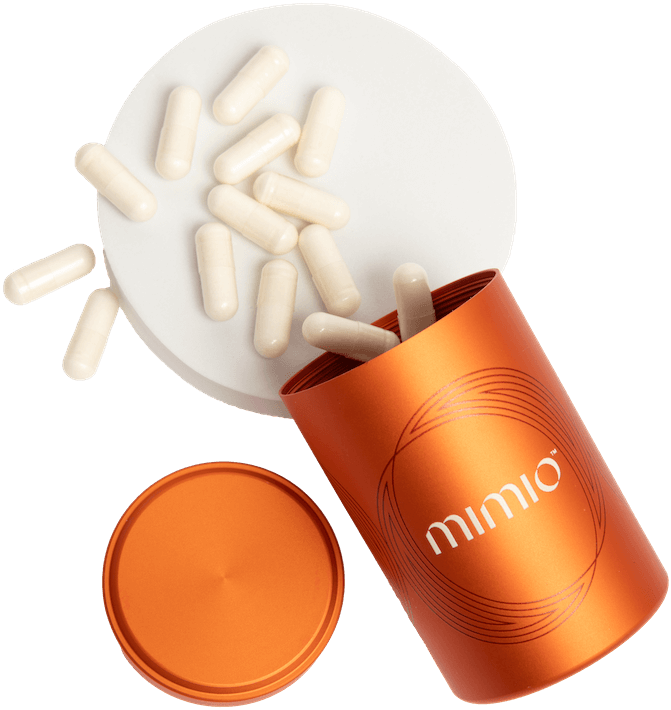You’ve probably heard it before: eat less, live longer. But how much less? And does it mean a lifetime of hunger, skipped birthdays, and sad salads?
Not quite.
The connection between calorie restriction and longevity is one of the most compelling areas in health science. Done right, it can reduce the risk of chronic disease, boost cellular repair, and extend healthspan. Done wrong? It can lead to fatigue, nutrient deficiencies, and even metabolic slowdown.
So let’s cut through the noise and dive into the science of how much calorie restriction is actually enough for longevity—and how to do it in a way that’s sustainable, empowering, and smart.
What Is Calorie Restriction, Really?
Calorie restriction (CR) isn’t about dieting—it’s a scientifically backed strategy that involves reducing your daily calorie intake while maintaining optimal nutrient intake.
In lab studies, CR has been shown to:
-
Extend lifespan in yeast, worms, mice, and monkeys¹
-
Improve insulin sensitivity and reduce inflammation²
-
Enhance autophagy, the cellular cleanup process tied to longevity³
But here’s the twist: you don’t need to slash your intake in half to see the benefits. The magic is in the moderation.
The Science Behind Calorie Restriction and Aging
The longevity benefits of calorie restriction are driven by several mechanisms:
|
Mechanism |
Effect on Longevity |
|
Reduced mTOR activity |
Slows cell growth, allowing more time for repair. mTOR (mechanistic Target of Rapamycin) is a nutrient-sensing pathway that regulates cell growth and metabolism. Lower activity is linked to increased lifespan. |
|
Increased autophagy |
Recycles damaged cellular components, preventing dysfunction |
|
Improved mitochondrial efficiency |
Enhances energy production with less oxidative stress |
|
Lowered inflammation |
Protects tissues and reduces disease risk |
|
Balanced insulin signaling |
Reduces metabolic strain and cellular aging |
Animal studies show life extension with CR in the 20–40% range. But applying those numbers directly to humans is more complex.
How Much Calorie Restriction Is Enough for Longevity?
This is the million-dollar question: how much calorie restriction for longevity is effective without being harmful?
The Goldilocks Zone
-
Too little restriction (<10%): May not trigger the metabolic benefits linked to longevity.
-
Too much restriction (>40%): Risks nutrient deficiencies, hormonal imbalances, and muscle loss.
-
Sweet spot (15–25%): Appears to offer the most benefit with the least risk—especially when paired with nutrient density and adequate protein.
In a major human study known as CALERIE (Comprehensive Assessment of Long-term Effects of Reducing Intake of Energy), participants who reduced calories by 25% over two years showed:
-
Lower blood pressure and cholesterol
-
Reduced oxidative stress
-
Improved quality of life
-
No signs of muscle loss or nutrient deprivation when diet quality was high
What Does a 15–25% Calorie Cut Look Like?
For someone with a daily maintenance intake of 2,000 calories:
|
Level |
Calories/Day |
Comment |
|
10% restriction |
1,800 |
Mild, may improve markers slightly |
|
20% restriction |
1,600 |
Moderate, strong longevity support |
|
25% restriction |
1,500 |
Deeper metabolic benefits, sustainable short-term |
Tip: Use tools like chronometers, nutrition tracking apps, or guidance from a registered dietitian to maintain nutrient adequacy.
Intermittent Calorie Restriction: A Gentler Alternative
You don’t have to restrict every day to get the benefits. Intermittent Calorie Restriction (ICR, or CR) uses periodic reductions to trigger similar cellular responses. Examples include:
-
5:2 Method: Eat normally five days, restrict calories (~500–600) on two non-consecutive days
-
Alternate-Day Fasting: Full calorie days alternated with fasting or low-calorie days
-
36-Hour Fasts: A full-day break from calories once or twice per month, shown to strongly activate autophagy
Want the cellular and healthspan benefits without the starvation? Mimio Biomimetic Cell Care is formulated to mimic the metabolic effects of a 36-hour fast—supporting autophagy and cellular renewal even during meals.
How to Do Calorie Restriction Right
Prioritize Nutrient Density
Fill your plate with:
-
Leafy greens, cruciferous vegetables
-
Legumes and whole grains
-
Omega-3-rich seeds and fish
-
Colorful fruits in moderation
-
Herbs, spices, and fermented foods
Don’t Skimp on Protein
Protein helps preserve muscle mass during CR. Aim for:
-
1.2–1.6g of protein per kg of body weight
-
Plant and animal sources: tofu, lentils, eggs, fish, Greek yogurt
Cycle It
Just like exercise, periods of intensity followed by recovery can work well. Some people do:
-
3–4 weeks of mild CR, followed by 1 week at maintenance
-
Seasonal CR, in alignment with natural rhythms
Support with Supplements
Because CR can make it harder to meet daily micronutrient targets, consider:
-
Multivitamins with B-complex, D3, magnesium, zinc
-
Adaptogens to buffer stress
-
Mimio to amplify cellular repair during low-calorie phases
The Psychological Side of Calorie Restriction
The best longevity protocol is one you can stick with. If CR triggers obsessive tracking or food guilt, it might not be the right fit. Instead, focus on:
-
Mindful eating: Savor, don’t restrict
-
Sustainable swaps: Reduce sugar, not satisfaction
-
Flexibility: Consistency beats perfection
A longevity mindset means seeing food as fuel for your future—not just your appetite.
Myths About Calorie Restriction and Longevity
|
Myth |
Reality |
|
Calorie Restriction is just about eating less |
It’s about strategic reduction while maximizing nutrients |
|
You’ll lose all your muscle |
Not if you include enough protein and strength training |
|
It’s only for weight loss |
The metabolic and cellular benefits go far beyond the scale |
|
You need to suffer to see results |
A mild, well-planned CR is powerful and sustainable |
|
Supplements can’t mimic fasting benefits |
Actually, Mimio uses biomimetic science to do exactly that |
What to Watch Out For
Calorie restriction isn’t right for everyone. You should avoid or modify CR if you:
-
Are underweight or recovering from an eating disorder
-
Are pregnant or breastfeeding
-
Have a chronic illness that affects nutrient absorption
-
Experience fatigue, hair loss, or frequent illness on CR
Always check with a healthcare provider before starting any diet or calorie restriction plan—especially a long-term one.
A Day on a Longevity-Focused CR Plan
|
Meal Time |
Example |
|
8 AM |
Matcha green tea, chia pudding with almond milk, blueberries, and walnuts |
|
12 PM |
Lentil salad with olive oil, greens, pumpkin seeds, and grilled veggies |
|
3 PM |
Handful of almonds or boiled eggs, sparkling water |
|
6 PM |
Wild salmon or tofu stir-fry with broccoli, quinoa, and fermented kimchi |
|
Evening |
Mimio supplement, light walk, early sleep |
The Mimio Advantage: Calorie Restriction Made Smarter
One of the biggest breakthroughs in longevity science is that it’s now possible to mimic the effects of calorie restriction without actually restricting calories—thanks to biomimetics.
Mimio Biomimetic Cell Care was engineered to replicate the cellular conditions of a 36-hour fast, supporting:
-
Increased autophagy
-
Reduced inflammation
-
Better metabolic regulation
-
Energy and clarity, even during eating periods
It’s ideal for those who:
-
Can’t or don’t want to restrict calories daily
-
Are looking to enhance the effects of their intermittent fasting
-
Want longevity without lifestyle extremes
Eat Less. Live More.
Calorie restriction, when done thoughtfully, is one of the most potent tools for living longer and stronger. But the goal isn’t starvation—it’s strategic abundance. Fuel your cells with what they need, skip what they don’t, and allow your biology to do what it was designed for: repair, regenerate, and thrive.
And if you’re ready to go a step further? Let Mimio help you harness the science of calorie restriction—without the hunger games.
References
¹ Fontana, L., Partridge, L., & Longo, V. D. (2010). Extending healthy life span—from yeast to humans. Science, 328(5976), 321–326.
² Most, J., Tosti, V., Redman, L. M., & Fontana, L. (2017). Calorie restriction in humans: An update. Ageing Research Reviews, 39, 36–45.
³ Madeo, F., Zimmermann, A., Maiuri, M. C., & Kroemer, G. (2015). Essential role for autophagy in life span extension. The Journal of Clinical Investigation, 125(1), 85–93.



